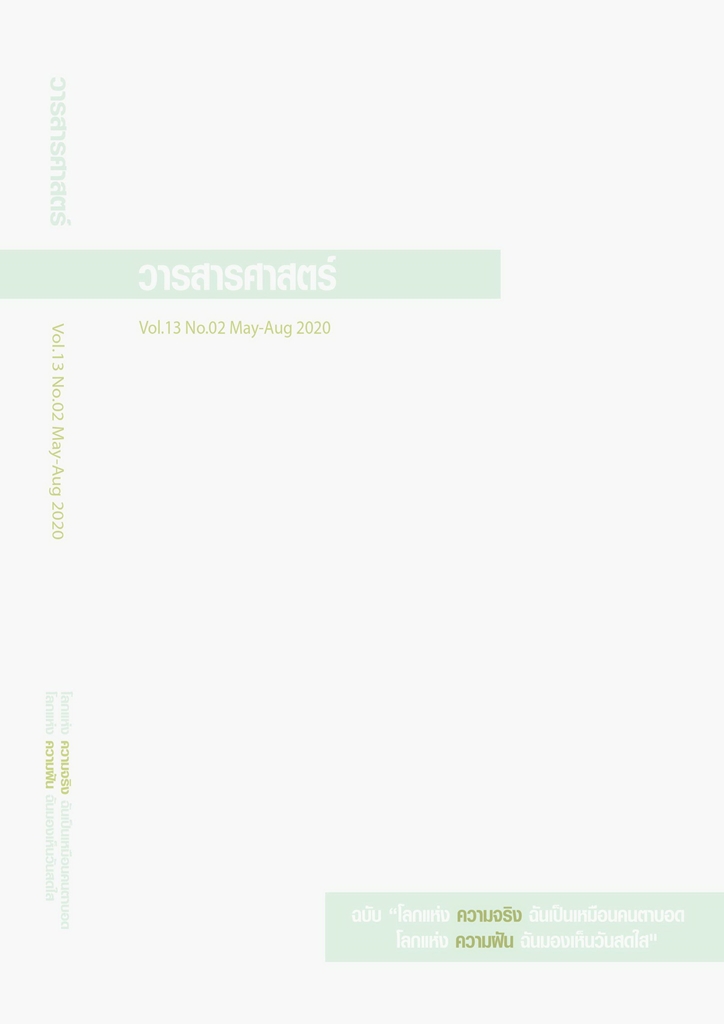การส่งเสริมการรู้เท่าทันสื่อ สารสนเทศ และดิจิทัล สำหรับเด็กและเยาวชน: กรณีศึกษาจากเกาหลีใต้ สิงคโปร์ และสหราชอาณาจักร
คำสำคัญ:
การรู้เท่าทันสื่อ, สารสนเทศ, และดิจิทัล, เด็กและเยาวชน, พลเมืองในระบอบประชาธิปไตยบทคัดย่อ
บทความนี้นำเสนอการวิเคราะห์นโยบาย การดำเนินงาน และบทบาท ของภาคส่วนต่างๆ ในการส่งเสริมการรู้เท่าทันสื่อ สารสนเทศ และดิจิทัล (Media, Information, and Digital Literacy: MIDL) สำหรับเด็กและเยาวชน ในต่างประเทศ โดยใช้ระเบียบวิธีวิจัยเชิงคุณภาพ ด้วยวิธีวิจัยเอกสารและเลือก ประเทศกรณีศึกษา 3 ประเทศ ได้แก่ สาธารณรัฐเกาหลี (เกาหลีใต้) สิงคโปร์ และสหราชอาณาจักร
ผลการศึกษาพบว่า นโยบาย การดำเนินงาน และบทบาทของภาคส่วน ต่างๆ ในการส่งเสริม MIDL สำหรับเด็กและเยาวชนในประเทศกรณีศึกษา โดยเฉพาะในรอบ 5 ปีที่ผ่านมา เน้นเรื่องการรู้เท่าทันดิจิทัล (digital literacy) โดยเฉพาะการปกป้องคุ้มครองเด็กและเยาวชนจากเนื้อหาอันตรายทางสื่อ ออนไลน์และความเสี่ยงในการใช้สื่อดิจิทัล ผ่านกิจกรรมการให้ความรู้และการ ฝึกอบรม รวมทั้งยังพบการส่งเสริมทักษะการใช้สื่อให้เด็กและเยาวชนผลิตเนื้อหา อย่างมีความคิดสร้างสรรค์ ขณะเดียวกัน ก็ให้ความสำคัญกับการให้ความรู้แก่ บุคลากรในสถาบันที่เกี่ยวข้องกับการปกป้องคุ้มครองและส่งเสริมการเรียนรู้ของเด็กและเยาวชน โดยเฉพาะครอบครัวและโรงเรียน ที่สำคัญ การออกแบบและ ดำเนินนโยบายอยู่บนพื้นฐานของการสำรวจและศึกษาเพื่อติดตามสถานการณ์ การใช้สื่อ สารสนเทศ และสื่อดิจิทัลของเด็กและเยาวชน รวมทั้งประชาชนทั่วไป เพื่อเป็นหลักฐานเชิงประจักษ์ในการกำหนดนโยบายต่างๆ
ผลการศึกษายังชี้ให้เห็นว่า บริบททางการเมือง สังคม วัฒนธรรม เศรษฐกิจ และภูมิทัศน์สื่อ มีอิทธิพลต่อการกำหนดนโยบาย การดำเนินงาน และบทบาทของภาคส่วนต่างๆ ในการส่งเสริม MIDL สำหรับเด็กและเยาวชน ปัจจัยเหล่านี้ส่งผลให้การส่งเสริมการคิดวิเคราะห์ การวิพากษ์ และการผลิตสื่อ เพื่อแสดงถึงอัตลักษณ์ ความคิดเห็น และความต้องการของเด็กและเยาวชน ซึ่ง เป็นรากฐานที่สำคัญในการสร้างเสริมสิทธิและเสรีภาพของพลเมือง รวมถึงการ มีส่วนร่วมของพลเมืองในสังคมประชาธิปไตย ไม่ปรากฏเด่นชัด เมื่อเทียบกับ การปกป้องคุ้มครองเด็กและเยาวชนจากเนื้อหาที่เป็นภัยและความเสี่ยงในการ ใช้สื่อมวลชน สารสนเทศ และสื่อดิจิทัล
เอกสารอ้างอิง
สถาบันสื่อเด็กและเยาวชน และเครือข่ายการศึกษาเพื่อสร้างพลเมืองประชาธิปไตย (2559), กรอบแนวคิดในการพัฒนาหลักสูตรการรู้เท่าทันสื่อ สารสนเทศ และดิจิทัล เพื่อสร้างพลเมือง ประชาธิปไตย, เอกสารประกอบการประชุมโต๊ะกลม การพัฒนา กรอบแนวคิด และ หลักสูตรการรู้เท่าทันสื่อ สารสนเทศ และดิจิทัล เพื่อสร้างพลเมืองในระบอบประชาธิปไตย ณ โรงแรมแมนดาริน กรุงเทพฯ เมื่อวันที่ 22 มิถุนายน 2559.
อุษา บิ้กกิ้นส์ (2555), “การรู้เท่าทันสื่อและสารสนเทศ”, สุทธิปริทัศน์, 26(80): 147-161.
Chung, W et al. (2017), “Preparing Students for a New Global Age: Perspectives from a Pioneer ‘Future School’ in Singapore”, in Choo, S. et al. (eds.), Educating for the 21st Century: Perspectives, Policies and Practices from Around the World. Singapore: Springer: 389-401.
King, D. et al. (2018), “Policy and Prevention Approaches for Disordered and Hazardous Gaming and Internet Use: an International Perspective”, Prevention Science, 19(2): 233-249.
Koltay, T. (2011), “The Media and the Literacies: Media Literacy, Information Literacy, Digital Literacy”, Media, Culture & Society, 33(2): 211-221.
Lankshear, C. and Knobel, M. (2008), “Introduction: Digital Literacies--Concepts, Policies and Practices”, in Lankshear, C. and Knobel, M. (eds.). Digital Literacies:Concepts, Policies and Practices, New York, NY: Peter Lang: 1-16.
Lim, S. and Nekmat, E. (2009), “Media Education in Singapore--New Media, New Literacies?”, in Cheung, C. (ed.), Media Education in Asia, Dordrecht: Springer: 185-197.
Lim, S. et al. (2011), “Singapore’s Experience in Fostering Youth Media Production--the Implications of State-led School and Public Education Initiatives”, in Fisherkeller, J. (ed.), International Perspectives on Youth Media: Cultures of Production and Education (Vol. 12), New York: Peter Lang: 84-102.
Lin, T. et al. (2015), “The Construct of Media and Information Literacy in Singapore Education System: Global Trends and Local Policies”, Asia Pacific Journal of Education, 35(4): 423-437.
Livingstone, S. (2004), “What is Media Literacy?”, Intermedia, 32(3): 18-20.
Martens, H. and Hobbs, R. (2015), “How Media Literacy Supports Civic Engagement in a Digital Age”, Atlantic Journal of Communication. 23(2): 120-137.
Mihailidis, P. (2016), “The Mobile Citizen: How a Media Literate Generation is Reshaping the Global Public Sphere”, in Frechette, J. and Williams, B. (eds.), Media Education for a Digital Generation, New York, NY: Routledge: 235-243.
Silver, A. (2009), “A European Approach to Media Literacy: Moving toward an Inclusive Knowledge Society”, in Frau-Meigs, D. and Torrent, J. (eds.), Mapping Media Education Policies in the World: Visions, Programmes, and Challenges, New York, NY: The United Nations-Alliance of Civilizations in co-operation with Grupo Comunicar: 11-13.
So, K. and Kang, J. (2014), “Curriculum Reform in Korea: Issues and Challenges for Twenty-first Century Learning”, Asia-Pacific Edu Res, 23(4): 795-803.
Wallis, R. and Buckingham, D. (2016), “Media Literacy: The UK’s Undead Cultural Policy”, International Journal of Cultural Policy, 25(2): 188-203.
Weninger, C. (2017a), “Media Literacy Education in Singapore: Connecting Theory, Policy and Practice”, in Chan, K. et al. (eds.), Multidisciplinary Approaches to Media Literacy, Beijing: Communication University of China Press: 399-416.
________. (2017b), “The “Vernacularization” of Global Education Policy: Media and Digital Literacy as Twenty-first Century Skills in Singapore”, Asia Pacific Journal of Education, 37(4): 1-17.
BBC Media Literacy Strategy May 2013 [pdf]. (2013), retrieved 3 January 2020 from https://www.bbc.co.uk/learning/overview/about/assets/bbc_media_literacy_strat-egy_may2013.pdf
Celot, P. (2014), Media Literacy European Policy Recommendations: EAVI’S VERSION [pdf], retrieved 3 January 2020 from https://www.eavi.eu/wordpress/wpcontent/uploads/2010/06/eavi%202014%20media%20literacy%20eu%20policy%20 recommendations.pdf
Frau-Meigs, D. et al. (2014), MIL Policies in Europe [pdf], Presentation presented at the European Media Literacy Forum 2014, 28 May 2014, retrieved 3 January 2020 from https://ppemi.enscachan.fr/lib/exe/fetch.php/colloque140528/presenta-tion_unesco_session_6.pdf
Jeong, H. et al. (2009), “History, Policy, and Practices of Media Education in South Korea”, in Frau-Meigs, D. and Torrent, J. (eds.), Mapping Media Education Policies in the World: Visions, Programmes and Challenges, retrieved 12 January 2019 from https://www.unesco.org/new/en/communication-and-information/resources/publications-and-communication-materials/publications/full-list/mapping-
media-education-policies-in-the-world-visions-programmes-and-challenges//
Lo, P. et al. (2014), “The Roles of the School Librarians as Information Literacy Special-ists: A Comparative Study between Hong Kong, Shanghai, South Korea, Taipei and Japan”, New Library World, 115(7/8): 314-339, https://doi.org/10.1108/NLW-01-2014-0012
McDougall, J. and Pereira, L. (2017), Digital Literacy and Education: Grid Report by
Country [pdf], retrieved 3 January 2020 from https://www.is1401eln.eu/fotos/editor2/meetings/uk_report.pdf
McDougall, J. et al. (2014), “Media and Information Policies in the UK [pdf]”, ANRTRANSLIT and COST “Transforming Audiences/Transforming Societies”, retrieved 3 January 2020 from https://eprints.lse.ac.uk/57103/1/Livingstone_media_informa-tion_literacy_2014_author.pdf
Media Literacy Council Slammed for Oversimplifying Indications of Cyberbullying Children(2018), Coconuts Singapore, 26 August 2018, retrieved 12 January 2019 from https://coconuts.co/singapore/news/media-literacy-council-slammed-oversimplifying-indications-cyberbullying-children/
Ng, E. (2012), Media Literacy Council is yet Another Attempt at Stifling Dissent, Sgpoli-
tics.net, 1 August 2012, retrieved 12 January 2019 from https://www.sgpolitics. net/?p=7781
Ofcom (2009), Audit of learning-related media literacy policy development [pdf], Ofcom, retrieved 3 January 2020 from https://stakeholders.ofcom.org.uk/binaries/research/media-literacy/Education_Policy_Audit_for_1.pdf
UNESCO (2013), Media and Information Literacy: Policy and Strategy Guidelines [pdf],Paris, UNESCO, retrieved 3 January 2020 from https://www.unesco.org/new/en/communication-and-information/resources/publications-and-communication-materials/publications/full-list/media-and-information-literacy-policy-and-strategy-guidelines/
________. (2016), “Media and Information Literacy”, UNESCO, retrieved 3 January 2020 from https://www.unesco.org/new/en/communication-and-information/media-devel-opment/media-literacy/mil-as-composite-concept/








